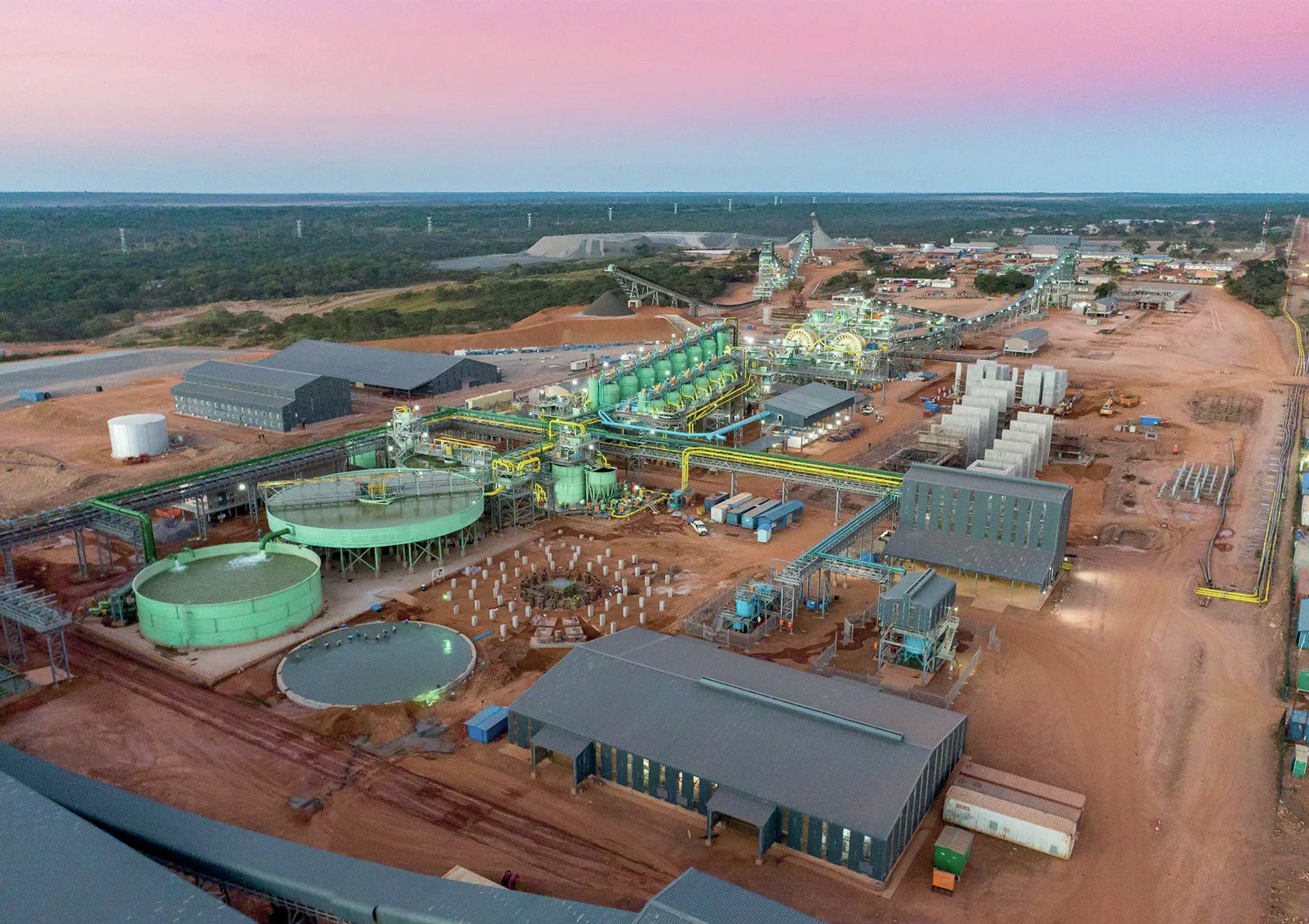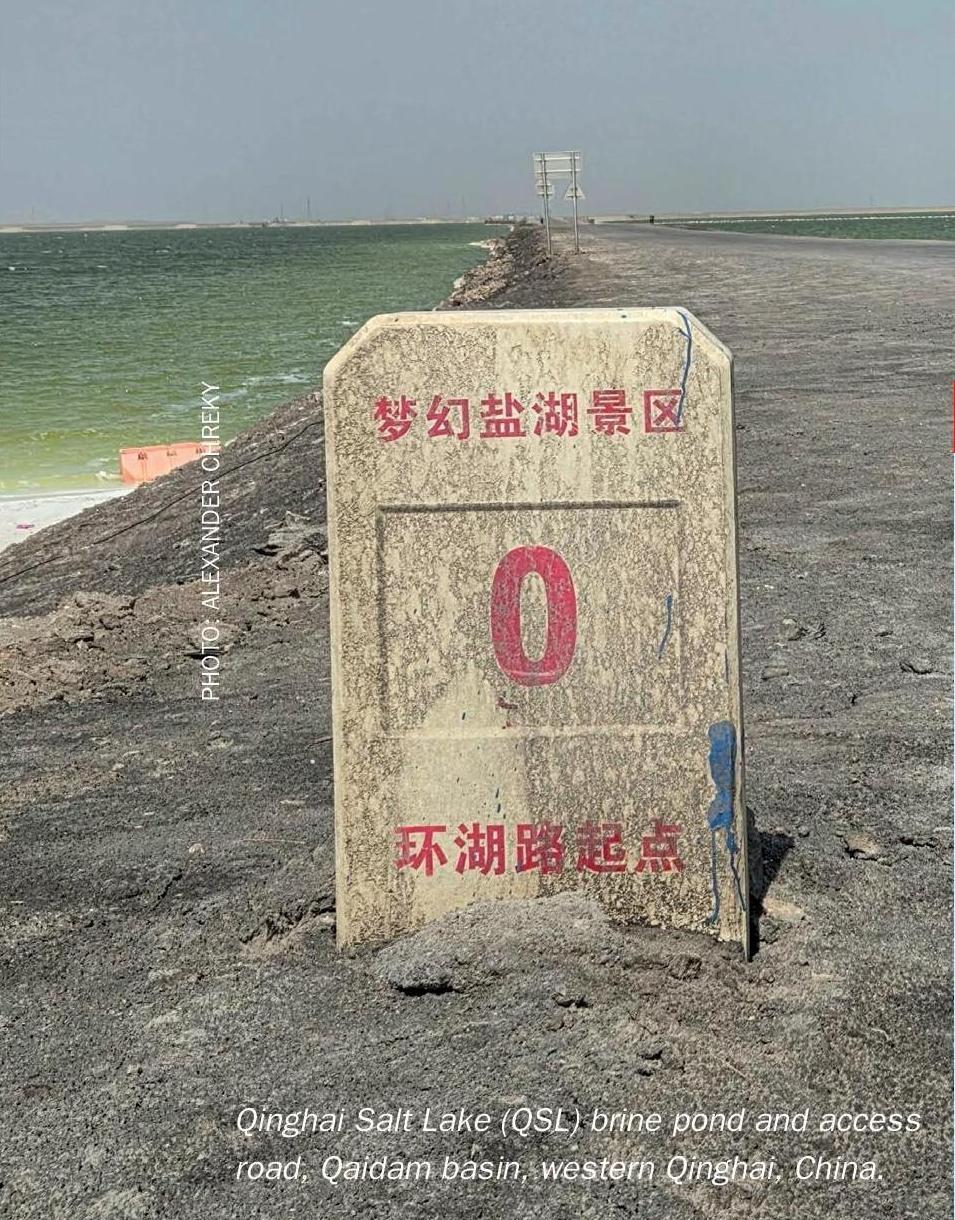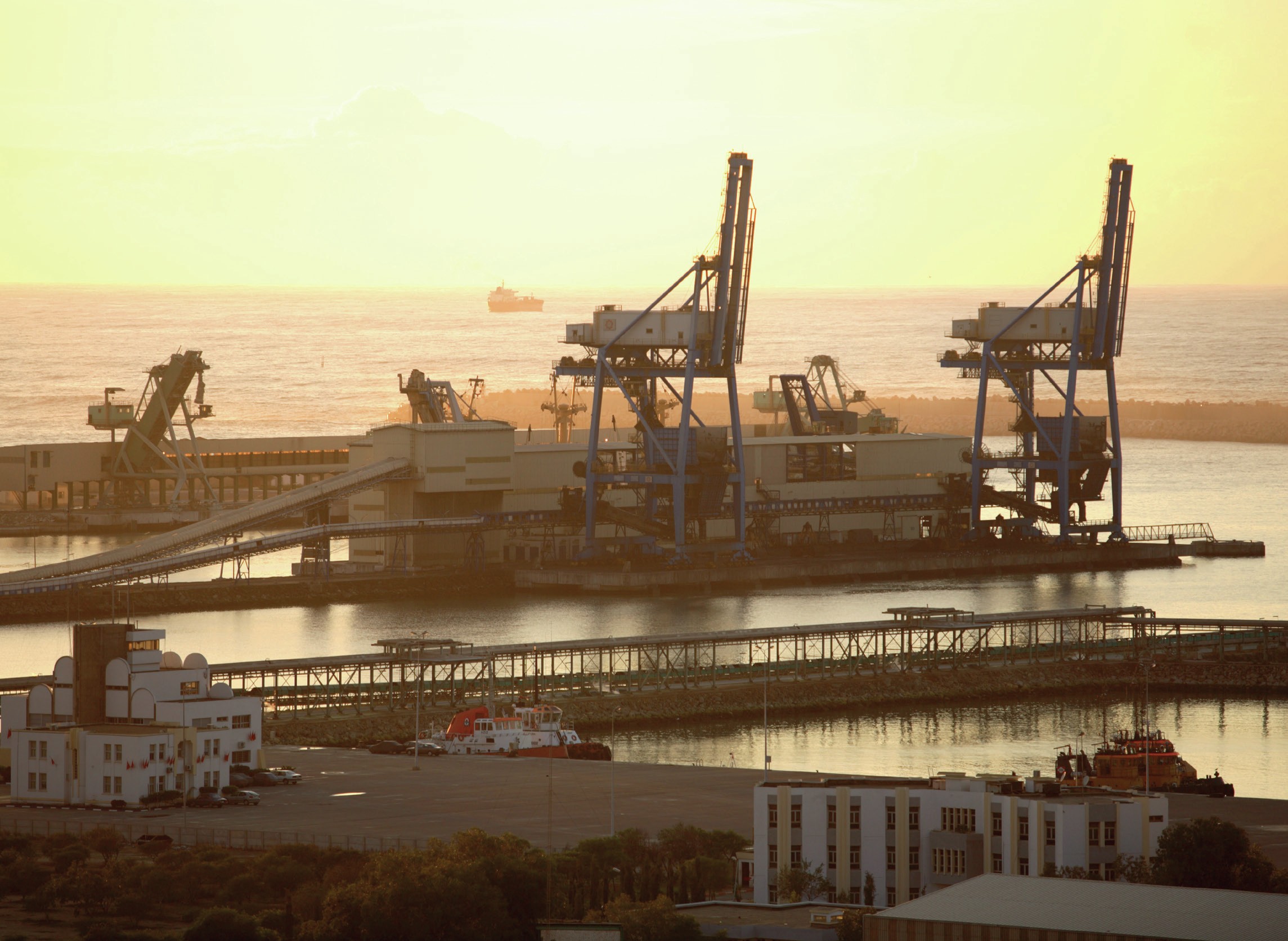Fertilizer International 495 Mar-Apr 2020
31 March 2020
Fertilizer Industry News Roundup
Fertilizer Industry News
CHINA/WORLD
Coronavirus pandemic hits commodity markets
The grave economic and human health consequences of the global spread of coronavirus (Covid-19) deepened in March.
Italy moved into national lockdown on 9th March, a move replicated in Spain a week later. The World Health Organisation also formally declared coronavirus a global pandemic on 11th March. The US responded by introducing a flight ban from EU countries from 14th March, before extending this to cover the UK and Ireland.
Shares around the world have also plunged with investors fearing the spread of the virus – and the inability of governments to halt this – will destroy economic growth.
The main UK FTSE 100 index dropped more than 10 percent on the 12th March, its worst day since 1987. In the US, meanwhile the Dow and S&P 500 were also hit by their steepest daily falls since 1987.
Oil prices also slipped to $30 per barrel in the second week of March on the news of virus-related factory shutdowns, a situation exacerbated by Saudi Arabia and Russia ramping-up their oil production.
The International Fertilizer Association (IFA) and CRU reacted to the growing transmission worries by cancelling the CRU Phosphates 2020 event in Paris, and postponing the 88th IFA Annual Conference in New Delhi. These were scheduled to take place in early March and late April, respectively.
The spread of Covid-19 in China and Italy has given markets a sobering indication of what to expect in other countries globally. The outbreak in China – the world’s second-largest economy, responsible for almost a fifth of global GDP – is having a significant impact on commodity markets, as trading patterns are disrupted and economic growth forecasts are revised downwards.
The scale of the impact emerged in a white paper published by analysts Argus in late February. “From a commodities markets perspective, it is arguable that the economic damage is already done and quantifiable,” said Argus, commenting specifically on the situation in China and it wider international repercussions.
Slowdowns in demand for commodities, and supply-side disruptions, look almost certain. The main debate now is about the scale of these impacts and their consequences for commodity producers, traders and distributors.
The International Energy Agency (IEA), for example, has cut its 2020 forecast for crude oil throughput at refineries globally by 600,000 b/d to 82.7 million b/d, reports Argus. The heaviest downward revisions – as much as one million b/d – occur in first quarter, with China accounting for half the drop. The IEA was previously forecasting a 300,000 b/d year-on-year increase over this period.
Argus is, however, projecting a more modest downward revision to oil demand of 380,000 b/d over the course of 2020. This projection is based on the Covid-19 pandemic causing a hit to the global GDP of just 0.3 percent. Argus does, however, caution that: “It is highly unlikely that the virus has finished springing its surprises – both psychological and real – for oil or the wider commodity markets.”
Rabobank is reporting that the utilisation rate in China’s fertilizer industry has dropped by about 30-40 percent year-onyear since the outbreak began.
Chinese phosphate production has been particularly badly hit by the spread of Covid-19. Hubei, the province at the epicentre of the outbreak, is responsible for almost 30 percent of China’s total phosphate production capacity. Mosaic estimates that Chinese phosphates production losses exceeded two million tonnes in the first-quarter. Companies in the province were not scheduled to reopen until 11th March.
To help Chinese industry restore production in the aftermath of the outbreak, state-owned China Railway cut rail transportation costs by up to 50 percent in early March. The move, which is scheduled to last until the end of June, should help restore distribution, given that rail transport is essential to fertilizer logistics within China. In a boost to urea and ammonia producers, NDRC, China’s main economic planning agency, is also reducing gas costs to aid industries affected by the Covid-19 outbreak.
According to Argus, the government in China is pushing fertilizer producers, local agriculture agencies and transportation providers to maintain fertilizer supplies. It is also urging farmers to continue crop planting during the spring season. Encouragingly, curbs on transportation have been eased in some areas, with early indications that domestic fertilizer sales are starting to rise.
This has not prevented the impact of the outbreak from spilling across China’s borders and affecting its major trading partners. Curbs on movement have halted agricultural imports from Vietnam and Myanmar since early February. Such measures, reports Argus, have left containers of fruit rotting at the border. Melons from Myanmar, dragon fruit from Vietnam and durians from Thailand are among the worst affected products.
China is a significant regional export destination for fruit. A lengthy halt to agricultural trade would therefore hit farm incomes in Southeast and East Asian countries. This in turn could hurt regional demand for fertilizers such as NPKs, says Argus.
Financial Times is reporting, based on an analysis by John Hopkins University, that major economies – France, Germany, Iran, Italy, South Korea, Spain, the UK and the US – are currently all following the same outbreak trajectory, with around one-third extra cases being confirmed daily. This suggests that the economic impacts of the pandemic will continue to magnify for at least several months ahead.
Italy has seen the largest European Covid-19 outbreak to date. Yet the country’s fertilizer market has yet to feel a major impact from coronavirus, Argus reported in mid-March, despite the introduction of stringent national measures to contain the outbreak.
Many in the industry will be monitoring the spread of Covid-19 in India, a key demand market for nitrogen, phosphate and potash fertilizers, and a mainspring of growth for the entire global fertilizer industry.
UNITED KINGDOM
Anglo American buys Sirius Minerals
Anglo American’s £405 million buyout of Sirius Minerals is to go ahead after gaining shareholder approval.
Sirius shareholders formally backed the takeover at a meeting in London on 3rd March. Sirius’ directors successfully headed-off a rebellion by small investors by winning the support of the majority of individual investors.
At what was described as a fractious meeting, the company’s sale to Anglo was supported by 62 percent of individual Sirius shareholders. The deal also received 80 percent support by total share value, significantly above the 75 percent threshold required.
Previously, Sirius had successfully raised $1.2 billion (£920 million) of ‘stage 1’ finance for its under-construction Woodsmith mine in North Yorkshire, near Whitby, close to England’s North Sea coast. But that still left the junior mining company needing a further $3.8 billion to fully develop the project and deliver on its ambition to become the world’s biggest polyhalite producer.
Anglo American has purchased Sirius Minerals at a price of 5.50 pence per share. This has left many shareholders out of pocket, given that Sirius shares were valued above 45 pence going back to September 2016, although they were trading at just over four pence a share immediately before Anglo’s approach was revealed. Around half of the company’s shareholders are 85,000 retail investors, many of whom live in Yorkshire where the mining project is located,
Sirius Minerals CEO Chris Fraser reportedly told shareholders at the deciding meeting: “This isn’t a great price but it is the price,” while adding that the failure to secure the necessary financing to complete the Woodsmith mine was the “greatest failure of my career”.
The board of Sirius Minerals unanimously recommended that shareholders vote in favour of Anglo American’s offer, warning there was a high probability the business would be placed in administration or go into liquidation if the deal was rejected.
Russell Scrimshaw, chairman of Sirius Minerals, said: “The positive outcome from today’s meeting secures a return for shareholders, and provides greater certainty in terms of safeguarding the project, protecting the jobs of our employees, and allowing the community, region and the UK to continue to benefit.”
Anglo American has said previously that it will broadly keep to the latest development plan for the Woodsmith mine published last November (Fertilizer International 494, p8), with the caveat that it would need to “update the timeline, optimise mine design and ensure appropriate integration with its own operating standards and practices”.
Dealings in Sirius Minerals shares were suspended in London from 16th March, following shareholder approval of the takeover. Anglo American’s purchase of the company was scheduled to be completed on 17th March.
UNITED STATES
K+S to divest its salt business
K+S has announced it is to sell its North and South American salt business to pay down debt. It will now focus on producing and selling fertilizers and speciality products instead.
K+S expects the sale to be agreed by the end of the year. However, neither the potential buyer for its American salt business or the value of the divestment have yet been disclosed.
“The sale of our strong Americas salt business is a decisive step in setting the course for the future development of K+S. After intensive examination, it is the best option to achieve the urgently required reduction of the company’s debt,” said Burkhard Lohr, chairman of K+S.
The divestment is part of the company’s plan to reduce its debt by more than two billion by end of 2021. The decision to exit the salt market in the Americas will also be accompanied by what K+S called a “comprehensive realignment and restructuring” of the company.
“Following the completion of the transaction, K+S will be further developed into a supplier of fertilizers and specialties on the basis of solid financial resources. No sale of shares in the new Bethune potash plant in Canada is planned,” K+S said in a statement.
All business activities and sites retained by K+S will be expected to generate positive free cash flow in future.
“Following the repositioning of K+S, we will be focusing on the expansion of the highly profitable fertilizer specialties business in the subsequent growth phase,” added Lohr.
K+S said it would reveal more details of the salt business sell-off and its plans for restructuring once the sale was agreed.
IFA puts sustainability centre stage
The International Fertilizer Association (IFA) highlighted its commitment to sustainability by convening the industry’s first ever Global Stewardship Conference in New York in early February.
IFA welcomed 170 leaders from the global fertilizer industry and the wider business community to the event at the Lotte New York Palace hotel from the 3rd to 7th February. Fertilizer International was pleased to support the event as IFA’s official media partner.
The conference linked urgent international obligations, such as the 2016 Paris Agreement and the UN’s Sustainable Development Goals (SDGs), with specific actions on sustainability and product stewardship being taken by the fertilizer industry.
The event enjoyed high level support, with the CEOs and chairs of some of the fertilizer industry’s biggest names attending and participating. This was a recognition that sustainability – by providing a social licence to operate and reducing reputational risks – is now becoming as important to companies as market share and shareholder value.
The conference was opened by Mostafa Terrab, IFA’s current chair and the chair of Morocco’s OCP Group. He welcomed a diverse range of delegates, including fertilizer industry CEOs, safety, health and environment (SHE) experts, agronomists and public affairs professionals. Policymakers, engineers and leading figures from intergovernmental bodies, NGOs, academia and business also attended.
The conference included presentations on fertilizer production, technological innovation, energy and water efficiency, and emissions reduction. The positive contribution fertilizers can make to soil health and biodiversity were also high on the agenda – as were efforts to improve nutrient use efficiency and minimise nutrient losses to the environment.
Many external speakers spoke about the fertilizer industry’s crucial role in the shift towards more sustainable agriculture. “Our food system is bankrupting our healthcare system and the fertilizer industry is critical for addressing this,” said Roy Steiner, a senior VP at the Rockefeller Foundation. Ann Tutwiler of the Meridian Institute and SystemIQ explained how the fertilizer industry could play a major role in helping countries implement agrobiodiversity as a way of mitigating climate change risks.
On sustainable fertilizer production, Peter Levi, a leading analyst at the International Energy Agency, thanked IFA for its input into the development of a Nitrogen Technology Roadmap. This is seeking to significantly improve energy efficiency and reduce the nitrogen industry’s carbon footprint.
Speakers were keen to highlight the fertilizer industry’s growing focus on sustainability. “Sustainability is business, not something a company does in addition to business,” observed Candace Laing, VP of sustainability & stakeholder relations at Nutrien. Although sustainability required investment, agreed Tip O’Neill, CEO of IRM, it “represents a huge market opportunity and leads to measurable returns”. Ben Pratt, VP of public affairs at Mosaic, strongly advised that the industry cannot afford “to step back from social and environmental responsibilities”.
The sustainable production and application of fertilizers – and the ability of the fertilizer industry to support sustainable food systems and help mitigate climate change – were key conference themes. “I am optimistic that through capital deployment, accelerated innovation and courageous leadership, the fertilizer industry will deliver in collaboration with communities and citizens,” said Devry Boughner Vorwerk, CEO of DevryBV.
“As the fertilizer industry takes an increasingly holistic approach to stewardship, we were delighted to have had such prestigious speakers, as well as a wide range of excellent presentations from IFA members from across the world detailing their impressive sustainability initiatives,” commented Charlotte Hebebrand, IFA’s director general.
IFA have decided to run the event again next year due to the success of this year’s inaugural conference.
A full report on IFA’s Global Stewardship Conference in will appear in the May/June issue of Fertilizer International.
Weir launches three new pumps
Weir Minerals has launched three new pumps for the sulphur, sulphuric and phosphoric acid industries.
These expand the company’s already well-established and market-leading Lewis® range of pumps and valves.
All three new pumps have been designed to maximise wear life and simplify maintenance. Weir says it has been able to significantly reduce the number of parts, compared to previous pumps, without compromising their performance.
The new Lewis horizontal process pump incorporates corrosion- and wear-resistant Lewmet® alloys. It also delivers the robust performance, efficiency and ease of maintenance usually associated with centrifugal pumps. This single-stage, end-suction pump is suitable for a wide variety of chemical processing applications.
The heavy-duty construction of the new Lewis VL axial flow pump makes it well-suited for corrosive, high-temperature chemical processing applications such as evaporator and crystalliser circulation. Its innovative design allows it to be customised to suite a wide variety of industrial applications. The pump is also easier and quicker to service due its low number of component parts.
The Lewis vertical high-pressure molten salt pump has been specifically designed for use in the emerging concentrated solar power (CSP) industry. This multi-stage, vertical turbine pump is able to handle the extremely high pressures and temperatures associated with pumping molten salt for thermal energy storage. It can be expanded from three to 14 stages. It also features an integrated protective thermal barrier, a non-contracting shaft seal and a low NPSH (net positive suction head) first stage.
“Although they’re designed to address different challenges, these three new pumps were guided by the same core design principles: using advances in material technology to achieve increased performance and wear life, while reducing complexity to simplify equipment maintenance and give us the flexibility to deliver more engineered-to-order features that benefit our customers,” said Jerry Ernsky, Lewis product manager, Weir Minerals.
DuPont launches Sennuba™ technology
DuPont Clean Technologies has introduced a new steam plume suppression system for wet scrubbing in sulphur recovery units (SRUs).
DuPont’s Sennuba™ system is being paired with the company’s existing MECSDynaWave® ® scrubber in this application.
The new system employs two heat exchangers and a heat transfer medium to heat stack gas from wet scrubbers. By recovering heat from the process that would otherwise be lost, this visible plume suppression system avoids the high operating costs associated with other methods of steam plume control.
“Our aim was to develop a solution that would offer the refining industry a cost effective, simple to operate and low maintenance plume suppression technology for its SRU scrubbers,” says Yves Herssens, global licensing manager for scrubbing technologies at DuPont Clean Technologies. “Sennuba™ offers reliable plume suppression and corrosion control in a scrubbing system that is at minimal risk of plugging.”
JORDAN
Veolia to expand potash plant capacity
Veolia Water Technologies has won a contract to expand production capacity at a leading potash fertilizer plant in Jordan.
Veolia say it will install HPD® crystallisation technology at the plant to extract highquality potash fertilizer from Dead Sea brines.
The plant’s existing crystallisers will be replaced with new HPD® crystallisation systems. These will improve the processing of carnallite feedstock – a mixture of magnesium chloride and potassium chloride – and increase the extraction of the water-soluble potash end-product. Veolia will also upgrade the barometric condensers which handle vapour generated by the new crystallisers.
These equipment upgrades and new installations will improve the plant’s efficiency and deliver energy savings, according to Veolia.
“We are delighted to support world-class producers in the extraction of essential potash crop nutrients for boosting agricultural productivity in Asia, Africa, and the Middle East,” said Jim Brown, CEO of Veolia Water Technologies Americas. “This is a testament to the value of the crystallization expertise we bring to the fertilizer industry”.
In a statement, Veolia confirmed it had secured a contract to “modernize a refinery on the southern shores of the Dead Sea”, adding that this would raise its production capacity to 1.5 million t/a.
Although the customer has not been named, it is likely that the expansion project was awarded to Veolia by Jordan’s Arab Potash Company, a major regional producer.
Veolia Water Technologies did not disclose the value of the contract.
NIGERIA
Dangote plant in pre-commissioning
Dangote’s large-scale urea-ammonia complex near Lagos, Nigeria, has finally entered pre-commissioning, the company has confirmed.
The giant fertilizer complex is located in the Lekki Free Zone close to Nigeria’s Atlantic seaboard, and has the capacity to produce three million tonnes of granulated urea annually.
The project to complete the $2 billion complex is now in its final stages and approaching completion. Italy’s Saipem is constructing the plant, being the project’s engineering, procurement and supervision contractor. Tata Consulting Engineers of India are acting as project management consultants.
Virtually every section of the urea production complex – including the central control room, ammonia and urea bulk storage, cooling tower, power generation plant and granulation plant – is now complete and are going through pre-testing, Dangote said in a statement.
The project is also receiving its gas feedstock. The fertilizer plant is being supplied with 70 MMscf/d of natural gas from the Nigerian Gas Company and Chevron Nigeria Ltd under a gas sale and purchase agreement.
Products from the fertilizer plant will save Nigeria $500 million by import substitution and generate $400 million in exports, according to Dangote Group executive director Devakumar Edwin.
“By the time our plant is fully commissioned, the country will become self-sufficient in fertilizer production – and even have the capacity to export to other African countries,” Edwin said, adding: “Around five million tonnes of fertilizers are required per year in Nigeria in the next five to seven years – 3.5 million t/a of urea and 1.5 million t/a of NPK, while current production levels in Nigeria [prior to the opening of the new Dangote plant] are 1.6 million t/a.”
BOLIVIA
Bulo Bulo plant relocation mooted
The Bolivian government has proposed moving the troubled Bulo Bulo ammonia-urea plant to a “more profitable” location closer to the Brazilian border.
Speaking to Bolivia’s state news agency, Víctor Hugo Zamora, the hydrocarbons minister, criticised the decision to locate the plant in Cochabamba state more than 1,000 kilometres away from Brazil, its principal market. Zamora described the $1 billion Bulo Bulo project as the “worst political whim” of former president Evo Morales’ government.
However, the practicalities of relocating the plant were questioned by Mario Apaza, Cochabamba’s industrial development director for energy and hydrocarbons. He responded to the minister’s comments by saying that relocation would not be viable due to lack of raw materials. He also estimated that costs of moving the plant would be around 60 percent of its original capital cost.
Bulo Bulo entered production in January 2018. Nominally, it has the capacity to produce 1,200 t/d of ammonia and 2,100 t/d of urea. But, according to Zamora, the plant has at times been operating at less than 10 percent capacity.
The plant produced 900 t/d of urea on average during 2019. This included 136 days with no production. Bulo Bulo’s output has been affected by the plant’s remoteness from potential end-markets and poor natural gas supply from declining fields. The plant also recorded a $6 million loss in the first-half of 2019 as global urea prices slumped below $250/t.
A new railway line to Montero to connect Bulo Bulo with the country’s eastern rail network also remains unfinished, despite having been under construction since 2013. This leaves truck transport as the only option for shipping urea from the plant.
The Bulo Bulo plant is currently closed for a three-month revamp.
BRAZIL
Três Lagoas up for sale again
Petrobras has restarted the process to sell the UFN-III urea project at Três Lagoas in Mato Grosso do Sul state.
Brazil’s state oil company issued a ‘teaser’ prospectus for the plant on the 10th February.
The construction of UFN-III began in September 2011 but subsequently stalled in December 2014 leaving the plant 81 percent compete. The plant will have the capacity to produce 2,200 t/d of ammonia and 3,600 t/d of urea once finished, according to Petrobras.
Petrobras had previously attempted to sell off UFN-III as part of a huge $30 billion divestment programme in 2018. More recent negotiations to sell the urea plant – and another in Parana state – to Russian fertilizer producer Acron collapsed last December, after Brazilian authorities blocked the plan.
The Acron deal was also contingent on Bolivia’s state-owned YPFB supplying 2.2 million cm/d of natural gas to the plant. This arrangement was thrown into doubt following the resignation of Bolivia’s president, Evo Morales, in November.
EGYPT
Aswan nitrogen complex completed
The new Egyptian Chemical Industries (KIMA) nitrogen complex at Aswan is finished and ready to enter production, according to the company.
The new $770 million complex has the capacity to produce 900 t/d of ammonia, 1,200 t/d of urea, and 300 t/d of ammonium nitrate (both low and high density). Full-scale commercial production is expected to start in April, following the successful completion of trial operations.
SPAIN
Highfield signs potash offtake with Keytrade
Australian potash project developer Highfield Resources has signed an offtake agreement to supply Keytrade AG with 300,000 t/a of potash from its under-development Muga potash project in Spain.
The terms were agreed between Geoalcali, Highfield’s wholly owned Spanish subsidiary, and the Swiss-based trading company in a memorandum of understanding (MOU) signed in February. The offtake represents about 30 percent of Muga’s projected output.
Highfield Resources chairman, Richard Crookes, said: “The signing of another offtake MOU is a very important step in solidifying Highfield’s commercialisation strategy. In addition, it is further recognition by the market of the importance of the Muga Mine in the global and local MOP supply space. Keytrade brings many years of experience and a large global network that will be extremely valuable to Highfield.”
Keytrade works with fertilizer suppliers, distributors, retailers and other end-users in more than 115 countries globally, through its main offices in Zurich, Madrid, Tampa, São Paulo, New Delhi and Beijing.






